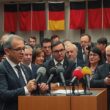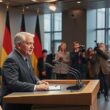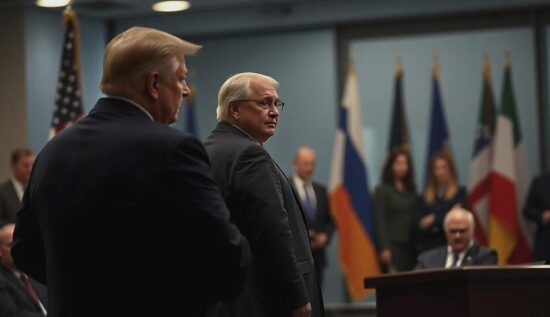The initiation of talks between Russia and the US to resolve the Ukraine conflict has received support from the AfD party in Germany. Following the Trump phone call, several state politicians praised the US administration’s approach. Mecklenburg’s state parliament member Nikolaus Kramer wrote on Facebook, “Donald Trump is now implementing what the AfD has been demanding for a long time: genuine diplomacy instead of endless weapon deliveries.”
A new foreign policy paradigm is emerging, based on pragmatic realism, which the AfD has long advocated for. Verbal negotiations and a willingness to compromise are crucial for peace, as opposed to constant weapon deliveries. The German government and the EU have been watching the diplomatic developments with a sense of helplessness, as the US dominates the scene.
Brandenburg’s state parliament member Birgit Bessin also commented on the talks in Riyadh, saying that the claim that Russia does not want to negotiate has been refuted. The AfD has been vindicated in its assertion that the Ukraine war is primarily a proxy conflict between Russia and the US.
The AfD’s foreign policy spokesperson, Matthias Moosdorf, expressed hope for the talks, saying, “I personally see the talks with great hope.” He believes that a diplomatic solution can be reached and that the AfD’s peace proposal, which was the first to be submitted to the German Bundestag in February 2023, can be a basis for negotiations.
The BSW party’s foreign policy spokesperson, Sevim Dagdelen, also views the talks as a positive development, despite her party’s skepticism about Trump. The EU states, she said, have been supporting Ukraine militarily and are now on the sidelines, as verbal negotiations are no longer needed. She expressed hope that Russian negotiators know how to secure lasting peace on the European continent, especially in the Eurasian region and that this means involving Ukraine in the process.





